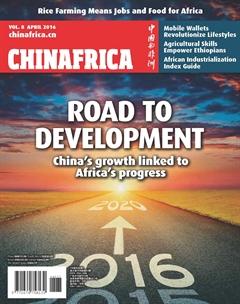Normalizing Relationships
AS diplomatic relations were restored between China and the Islamic Republic of the Gambia in March, Chinas Foreign Minister Wang Yi called it a “historic moment” for the two countries.
Wang met with his Gambian counterpart Neneh MacDouall-Gaye in Beijing to sign a joint communique on March 17.
Formal diplomatic ties between the two countries date back to 1974 but were suspended in 1995 following the Gambias decision to resume so-called “diplomatic relations” with Taiwan, which were terminated in 2013. The restoration of Sino-Gambian relations sends a clear signal to Africa and beyond that the one-China policy is the foundation of all relationships developed by China with any sovereign state and that Taiwan is an inalienable part of China.
Contrary to reports by observers in Western media that the restoration of ties has to do with economic diplomacy, the timing of Taiwans recent “elections,” or a host of other hidden agendas, the move was in fact initiated by Gambian President Yahya Jammeh, who recognized that ties with China can serve his own countrys interests.
Jammeh said he has seen Chinas advent into Africa boost a lot of countries infrastructure and socio-economic development. He admitted this is the type of partnership his country wants because China invests in other countries and helps without interfering in their internal affairs, or dictating what economic systems they should adopt. “This is the type of partnership we want, where the sovereignty of the country is respected, the people are respected, and it is mutually rewarding,” Jammeh said.
With China now operating in a more defined capacity-building role on the continent, as seen by the growing number of industrial zones and skills training programs, the Gambias geographical location is seen as strategic. Its capital, port city Banjul on the Atlantic Ocean, provides mutual interconnectivity potential and opportunities.
Restoration of ties also means the Gambia will automatically become a member of the Forum on China-Africa Cooperation and can benefit from the China-Africa assistance package of $60 billion announced in December.
Key areas of future cooperation include agriculture, fisheries, trade and investment, infrastructural development and tourism. Textiles and tea currently make up the bulk of trade between the two.
Based on its long experience of opening up and reform, China is acutely aware that to improve governance and develop to full potential, each country needs to be cognizant of its own unique conditions. It can assist Africa, and now specifically the Gambia, by ensuring that it does not force any agendas on others and also by sharing the valuable lessons learned through its own experience in rising to become the worlds second largest economy.
For China, normalizing the relationship with the Gambia without preconditions is the opening of a doorway leading to mutual benefits. It emphasizes the mature mode of Chinas cooperation with the continent and how this cooperation is fundamental to the interests of people on both sides of the equation.

